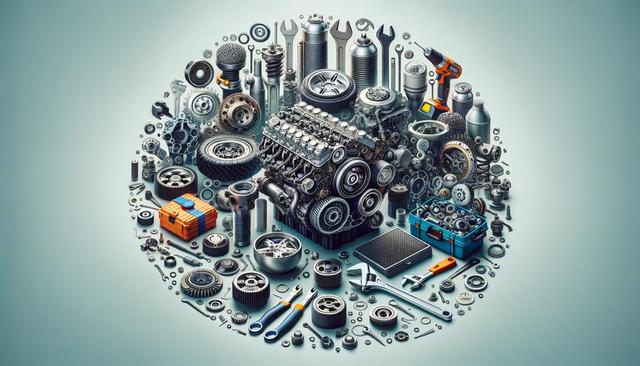Why Engine Repair Training Matters
Automotive engine repair courses are a vital stepping stone into the world of professional vehicle service. Whether you’re passionate about cars or looking for a stable and rewarding trade, engine repair training provides a solid foundation. These courses cover the inner workings of combustion engines, troubleshooting techniques, component replacement, and preventive maintenance. Participants not only gain theoretical knowledge but also develop hands-on experience that reflects real-world scenarios. This combination ensures learners are better prepared to enter the workforce with confidence and competence.
Engine repair skills are applicable across a range of vehicles, including passenger cars, light trucks, and small engines such as lawnmowers or generators. This versatility makes the training especially valuable for individuals seeking a career with broad opportunities. In addition, many training programs align with industry standards and certifications, helping graduates meet the expectations of potential employers and clients.
What to Expect from an Engine Repair Course
A typical engine repair course is comprehensive and structured to guide students from the basics to more advanced topics. Most programs begin with an introduction to engine systems, including:
- Engine types and configurations
- Internal components and their functions
- Basic diagnostic procedures
Following this, students dive into more detailed lessons such as fuel and ignition systems, cooling and lubrication systems, and emission control mechanisms. Training is often conducted in a workshop setting, allowing learners to disassemble and reassemble engines, calibrate equipment, and practice repairs under supervision.
Courses may also incorporate safety protocols, proper tool usage, and documentation practices. These added elements ensure that trainees are not only skilled but also operate with professionalism and adherence to industry norms.
Career Opportunities After Training
Completing an automotive engine repair course can open the door to a variety of job roles in the automotive industry. Graduates can pursue positions such as:
- Automotive technician
- Small engine mechanic
- Fleet maintenance specialist
- Service advisor with technical knowledge
In some cases, individuals may choose to specialize in a particular area, such as diesel engine repair or performance tuning. Others may leverage their skills to start their own repair business or mobile mechanic service. The demand for qualified technicians remains steady, as vehicles continue to be an essential part of modern life and require consistent maintenance and repairs.
Additionally, those who pursue further education or certifications can enhance their credentials and take on supervisory or instructional roles in the future.
Choosing the Right Training Program
Selecting the right engine repair course is a critical step in your career path. Several factors should be considered when comparing programs:
- Accreditation and reputation of the training center
- Curriculum depth and alignment with industry standards
- Availability of hands-on training and lab facilities
- Support services such as job placement assistance and mentorship
Prospective students should also evaluate the schedule flexibility, cost of tuition, and duration of the course. Some programs offer evening or weekend classes to accommodate working individuals, while others might provide accelerated training for quicker entry into the field.
It’s beneficial to speak with program advisors, review course materials, and speak with recent graduates to get a sense of how the training aligns with your goals. Many successful technicians credit their early training as the cornerstone of their professional journey.
Building Long-Term Success in the Field
While completing an engine repair course is an excellent start, long-term success in the automotive field requires continuous learning and skill development. Technologies in vehicles evolve rapidly, with modern engines incorporating electronic control units, hybrid systems, and advanced diagnostics. Staying up to date with these changes is essential for remaining competitive in the job market.
Technicians can enhance their careers by attending workshops, pursuing manufacturer-specific training, or earning additional certifications. Networking with other professionals, joining industry associations, and reading trade publications also help maintain current knowledge and open new doors.
Another key to success is developing strong customer service and communication skills. Being able to explain repairs clearly, provide accurate estimates, and earn customer trust is just as important as technical expertise. These soft skills contribute to repeat business and a solid reputation in the industry.
Conclusion: A Practical Path to a Skilled Trade
Automotive engine repair courses offer an excellent opportunity for individuals looking to enter a hands-on, stable, and growing industry. With training that combines theory and practice, students gain the capabilities needed to service a wide range of engines professionally. Whether you’re just starting out or looking to enhance your technical skills, enrolling in a structured engine repair program can help you kickstart a fulfilling and sustainable career in automotive service.




Leave a Reply